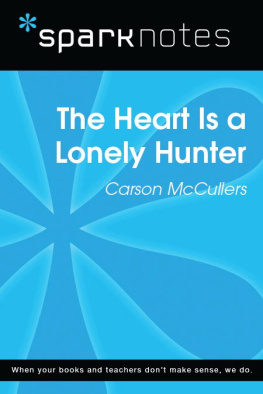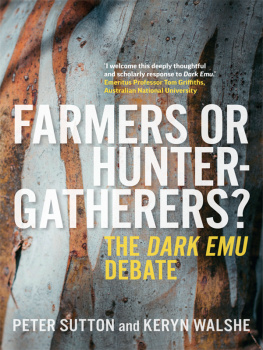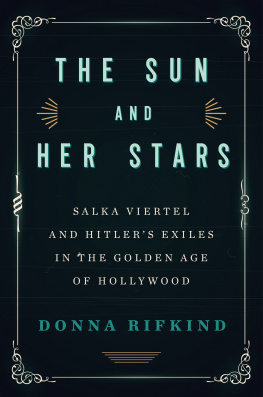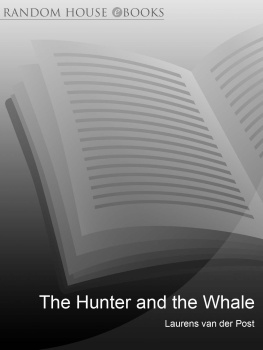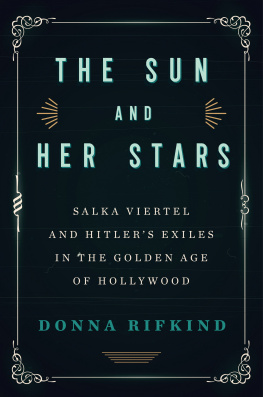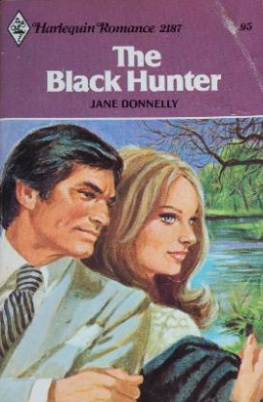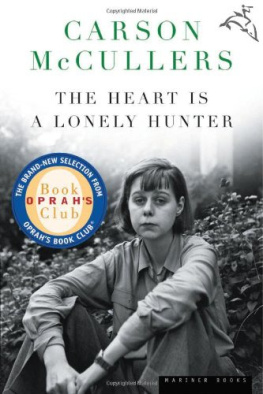Peter Viertel - White Hunter, Black Heart
Here you can read online Peter Viertel - White Hunter, Black Heart full text of the book (entire story) in english for free. Download pdf and epub, get meaning, cover and reviews about this ebook. year: 1987, publisher: Laurel, genre: Detective and thriller. Description of the work, (preface) as well as reviews are available. Best literature library LitArk.com created for fans of good reading and offers a wide selection of genres:
Romance novel
Science fiction
Adventure
Detective
Science
History
Home and family
Prose
Art
Politics
Computer
Non-fiction
Religion
Business
Children
Humor
Choose a favorite category and find really read worthwhile books. Enjoy immersion in the world of imagination, feel the emotions of the characters or learn something new for yourself, make an fascinating discovery.

- Book:White Hunter, Black Heart
- Author:
- Publisher:Laurel
- Genre:
- Year:1987
- Rating:5 / 5
- Favourites:Add to favourites
- Your mark:
- 100
- 1
- 2
- 3
- 4
- 5
White Hunter, Black Heart: summary, description and annotation
We offer to read an annotation, description, summary or preface (depends on what the author of the book "White Hunter, Black Heart" wrote himself). If you haven't found the necessary information about the book — write in the comments, we will try to find it.
White Hunter, Black Heart — read online for free the complete book (whole text) full work
Below is the text of the book, divided by pages. System saving the place of the last page read, allows you to conveniently read the book "White Hunter, Black Heart" online for free, without having to search again every time where you left off. Put a bookmark, and you can go to the page where you finished reading at any time.
Font size:
Interval:
Bookmark:

When I think back now, I realize that the only thing John Wilson and I actually ever had in common was the fact that at one time or another each of us ran over someone with an automobile. The victim of his accident died; mine lived on to sue the insurance company for a good many years. The great difference between the end results of these two very similar happenings seems fairly symptomatic to me, for it somehow symbolizes the essential difference between Wilson and myself. Things that happened to me always simmered down and became mild little adventures, hardly worth remembering. Things that happened to Wilson exploded. Most people attributed this directly to his nature, but I prefer to think that chance had something to do with it. It is true that Wilson was always a violent man, given to violent actions. Some of my friends called him a spoiler, and ascribed his wild, troubled life directly to his personal mania for destruction and disaster, but these generalizations always seemed inaccurate to me, for although he certainly contributed to the trouble that always sprang up around him, I cannot believe that he caused it all. Violent, irresponsible personalities seem to attract similar personalities and very often it is hard to put your finger on who is cause and who is effect. That was certainly true of Wilson. I say was, not because he is dead, but because I think our long friendship is over. The end of love always gives you a momentary over-all look at life, and you can see the past in a cold, true light. That's why I can write all this about John.
A very talented, intelligent actor I know said that Wilson was the leading exponent of the "screw-you-all" type of personality. He also always added that in order to survive with that particular type of personality one had to be born rich or very, very talented. The latter was true of John. He had and still has a great amount of talent. He made a career, despite the basic attitude so aptly described by my friend, by continually violating all the unwritten rules that govern the motion picture business. He told his bosses what he thought of them (and he was always right), he publicly abused all the women he was involved with (which is dangerous, for Hollywood is a very moral, middle-class town), he supported doubtful political causes (on the basis of integrity and not because of a romantic, adolescent political conviction), he drank to excess (and he certainly became less charming when he did so), he made a great many wonderful pictures, very few of which made any money at the box office (which is the most dangerous thing a man can do in Hollywood), and he spent all his money (which is a dangerous thing to do anywhere). All of these violations of the tribal rules, for which I admired him, did him no harm. Instead they helped him. There have been a great many imitations of his style of living. Actors, writers, and even producers have occasionally tried what he did day in and day out and they have all ended badly: in jail or in hock or as recipients of the Motion Picture Relief Fund. Perhaps they lacked his talent, but I don't think that is it. I think they lacked the magic, almost divine ability he had to land on his feet.
I knew him for many years. I met him in the thirties after my first novel was published. He admired it, and took a lot of time to tell me so. From that rather solid beginning we went on to discover that we both loved horses. From that he went on to suppose that we were both capable of a wild, dangerous life. The war cemented our friendship. Vainglory and pride made me join the Marine Corps, which I regretted twenty-five minutes after I had done so. Wilson interpreted my actions as those of a kindred spirit, and although we met only a few times during the war while we were both on leave, the fact that I wore the green uniform of the "attack force" helped maintain our friendship. He was in the Air Corps, as a photographer, and he flew a great many dangerous missions, and made two very solid documentary movies which helped his career no little bit. I mention this as another example of the screw-you-all spirit which motivated him, and which catapulted him upward.
After the war we saw a lot of each other. Both of us were practiced listeners, having survived a good many story conferences prior to surviving World War II, and we were able to spend days and days together on the company payroll, lying to each other about our various exploits. Actually I think I know his war stories as well as I know my own, and although he usually elaborated my tales of fear and suffering, I know he could tell any one of my stories as well as I could. He would tell them slower, that's all, because that was and is his style of storytelling. His movies are fast and brilliant. His after-dinner stories are slow and tortured affairs. However, they usually have a very good endingthat is, if he hasn't had too much to drink and remembers everything properly.
A few years after our return to civilian life we made our first movie together. It was not one of Wilson's best pictures, but apart from the writing of the script, it was one of the best times he ever had. Everything went wrong, and so he thoroughly enjoyed himself, somehow pulling it all together in the end and making a critical success of what had seemed a frightening disaster. I made enough money out of the venture to be able to go to Europe, where I intended to write a novel. Instead I learned to ski, and became one of the best skiers in the Screen Writers' Guild, if not the best. Once the snow began to melt I realized that I had succeeded at the wrong thing, and I faced a dismal spring of frustration and guilt. It was at this moment that Wilson telephoned. I was sitting in the bar of the small Swiss hotel where I had frittered away just about as much time as I had wasted on the slopes, when the barman turned to me and said that someone in London was asking for me on the telephone.
I couldn't imagine who was calling me, and so the first two minutes of our conversation were spent as fruitlessly as my two months in Switzerland.
"Pete..." a voice seemed to be calling dimly over the noise of the piano and the static of the Channel.
"Yes, who is it?"
"I can't hear you, Pete."
"I said who is it?"
"Hello, Pete," the voice repeated. I asked Willy the bartender to subdue the pianist and then I heard Wilson's voice come unmistakably into the small, hot room.
"Hello, Pete... this is John. John Wilson."
"John! Where the hell are you?"
"Well, I'm in London, kid, where are you?"
"In Switzerland."
"Well, for God's sake."
We both sounded like happy idiots. Hearing his voice again seemed to have cured me of my mountain fever, and I was delighted. It was like hard reality coming to one after an endless pleasant dream which has turned into a nightmare.
"What are you doing in London?" I asked.
"What are you doing in Switzerland?" he replied.
"Skiing."
"You are, eh? Well, for God's sake." He chuckled happily, as did I. We both felt childishly impressed to be talking to each other from such strange locales. He had always called from Burbank, and I had always been in Santa Monica.
"Why don't you come over?" I asked.
"I can't, kid. But I've got something to ask you."
"Shoot. What is it?"
He seemed to be talking slower than ever, and then as I realized that it was seven-thirty in the evening I knew what the cause of it was.
"I've got a little proposition to make you," he said, enjoying the moment. "How would you like to go to Africa?"
"Sure," I said, living up to his notion of me. "Where in Africa?"
"Darkest Africa," he said. "The very darkest bloody corner of Africa we can find."
Next pageFont size:
Interval:
Bookmark:
Similar books «White Hunter, Black Heart»
Look at similar books to White Hunter, Black Heart. We have selected literature similar in name and meaning in the hope of providing readers with more options to find new, interesting, not yet read works.
Discussion, reviews of the book White Hunter, Black Heart and just readers' own opinions. Leave your comments, write what you think about the work, its meaning or the main characters. Specify what exactly you liked and what you didn't like, and why you think so.

